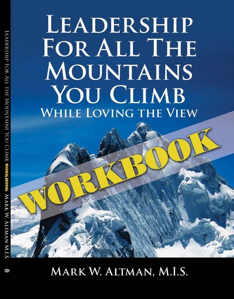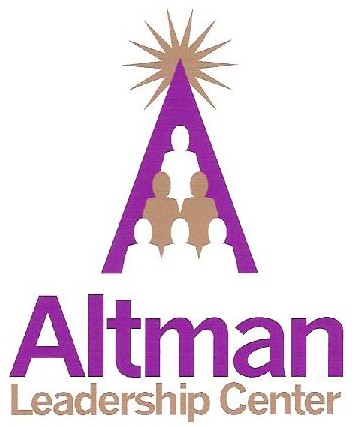"There is a place in America to take a stand: it is public education. It is the underpinning of our cultural and political system. It is the great common ground. Public education after all is the engine that moves us as a society toward a common destiny... It is in public education that the American dream begins to take shape." —Tom Brokaw
My volume of mail went up considerably last week after my column on home schooling in Idaho and I suspect there will be similar debate over the topic of charter schools. I am a fan of home schooling and other educational alternatives, if and only if, they can be shown to be effective for each child they are applied to. If an alternative can be demonstrated to be effective for one family then that family should be allowed to continue whatever they are doing that is working. If a family wishes to do something outside the mainstream, then it should be incumbent upon that family to demonstrate effectiveness. However, failing to educate or failing to demonstrate progress, should not be an option.
Charter schools, across the US have received a mixed report card, much in the way home schooling, or public school, for that matter. My conversation with the principal of our own Charter School and the public school administration illustrates three reasons for this mixed report card.
Parent involvement- Ask virtually any teacher in any setting, and they will tell you that parental involvement and support is the most important indicator of educational success. A child from a functional, loving, nurturing home, where a safe, quiet place to do homework, high expectations and maybe even a little tutoring when needed, will always outperform the student that does not enjoy these advantages. This is the biggest challenge all school systems face. Our local charter school, IB, AP, and high-achieving home schools, enjoy a high percentage of students from highly functioning backgrounds. The less of these advantages available to a student the poorer student performance will be, and the more expensive education is to the taxpayer.
Appropriate goals- The goals of society, governmental agencies, the educational system, the parent and the student themselves, must all be in agreement before the most effective education can take place. What kind of education is to be delivered? Mainstreaming or tracking, college prep or vo-tech training, academic, athletic or social emphasis? Much of the challenge for all school systems stems from a lack of consensus on all these topics. Charter families have the same goals as the school system they are part of, or they change systems in very short order.
Right setting for the right student- Placing the child in an environment the student can thrive in can make a real difference. Large school or small, highly structured or more liaise faire, regular public school, charter, or home school. Charter school families make an active decision to go to charter in the first place, insuring some level of commitment to the system from day one; then if they realize the system isn’t for them, they can easily go back to the regular public school they came from. This is another reason charter schools can boast a performance advantage over a regular public school, but it is also why the charter model is not a panacea for the ills of education in the US.
Charter schools, magnet schools, public school and even home schooling can be very successful if these three challenges are taken into account and planned for. However, no matter which of these systems a family uses to educate their children, we all have a vested interest in ensuring children are receiving as good and as much education as they can. As a society, the way this goal is achieved is to track each child using the tools of curriculum review and yes, standardized testing.
Tagline: Mark Altman is a speaker and leadership consultant with the Altman Leadership Center. He is the author of a new book, Leadership For All the Mountains You Climb; it may be purchased at Barnes and Noble, Amazon and other on-line retailers. Mark can be reached at mark@taolc.com.
Altman Leadership Center Speaking/Consulting web page
Wednesday, May 7, 2008
Friday, May 2, 2008
Home Schooling in Idaho
Democracy cannot succeed unless those who express their choice are prepared to choose wisely. The real safeguard of democracy, therefore, is education. - Franklin D. Roosevelt
With the debate over the proposed levy heating up, it has been suggested to me that home schooling and charter schools are viable options for teaching large numbers of children. Before engaging in the viability of alternative systems for educating children, it is important to review the primary reasons public schools were started in the first place. The first was the need for a semi-trained work force to serve the requirements of a rapidly industrializing nation, and the second was because most parents then, like today, lacked the capacity in time, temperament, discipline and education to do the job themselves. In addition, as FDR and many others have pointed out, for representative government to succeed over the long run, the first requirement is an educated electorate.
These reasons are why society will always have a compelling interest in the education of the children that will become its adults and why policy must address all children, not just some. No doubt there are a very small percentage of families that make homeschooling work. However, as you are reading this, no one can tell us how many children are being home-schooled in Idaho, nor can they tell you how effectively that job is being done. They can’t tell you because that data is not collected by anyone. No Idaho agency requires parents to inform them how they are homeschooling, and neither testing nor inspection is done to insure the instruction is taking place.
The state does not keep track of how many home-school students there are, what grade level they have progressed to, whether they fulfill graduation or GED requirements, or how many go on to college. They also do not mandate that parents submit a curriculum, or students sit for an ISAT or SAT test. Therefore, the test scores home school organizations tout are only of the brightest or at least of the ones lucky enough to live in a family where education is taken seriously enough that parents realize they need to make sure their student is on track, or ahead of, their public school peers. My guess is if you only tested the top 25% of public school kids, the home-schoolers would be trounced soundly for all the reasons I mentioned earlier. However, because home school kids are neither tracked nor tested, we don’t have any way of proving my contention one way or another.
Further complicating matters is the fact that it is virtually impossible for authorities to prove that education is not taking place in a home. Only in cases of divorce where one parent is complaining against another or in a case of suspected abuse where an investigation exposes a student not being educated, do authorities have the ability to act. In this regard, the law is wholly inadequate to protect children from the neglect of not being educated.
If you are looking for someone to blame for this mess, the list is short. First parents, for their arrogance in believing they can teach subjects that for most of them they barely learned when they were students, and time has eroded most of the rest of their knowledge. The next is our legislators for pandering to citizens who fall in the first category or who are borderline paranoid. While I realize you have a tough time being elected when you call the electorate uneducated or stupid; you don’t have to tie the hands of the very people that spend their professional lives passing the knowledge of one generation to the next. Surely, there is common ground we can find in insuring that children are receiving a full measure of the only earthly birthright they are all entitled to: as much education as they can soak up.
Tagline: Mark Altman is a speaker and leadership consultant with the Altman Leadership Center. He is the author of a new book, Leadership For All the Mountains You Climb; it may be purchased at Barnes and Noble, Amazon and other on-line retailers. Mark can be reached at mark@taolc.com.
With the debate over the proposed levy heating up, it has been suggested to me that home schooling and charter schools are viable options for teaching large numbers of children. Before engaging in the viability of alternative systems for educating children, it is important to review the primary reasons public schools were started in the first place. The first was the need for a semi-trained work force to serve the requirements of a rapidly industrializing nation, and the second was because most parents then, like today, lacked the capacity in time, temperament, discipline and education to do the job themselves. In addition, as FDR and many others have pointed out, for representative government to succeed over the long run, the first requirement is an educated electorate.
These reasons are why society will always have a compelling interest in the education of the children that will become its adults and why policy must address all children, not just some. No doubt there are a very small percentage of families that make homeschooling work. However, as you are reading this, no one can tell us how many children are being home-schooled in Idaho, nor can they tell you how effectively that job is being done. They can’t tell you because that data is not collected by anyone. No Idaho agency requires parents to inform them how they are homeschooling, and neither testing nor inspection is done to insure the instruction is taking place.
The state does not keep track of how many home-school students there are, what grade level they have progressed to, whether they fulfill graduation or GED requirements, or how many go on to college. They also do not mandate that parents submit a curriculum, or students sit for an ISAT or SAT test. Therefore, the test scores home school organizations tout are only of the brightest or at least of the ones lucky enough to live in a family where education is taken seriously enough that parents realize they need to make sure their student is on track, or ahead of, their public school peers. My guess is if you only tested the top 25% of public school kids, the home-schoolers would be trounced soundly for all the reasons I mentioned earlier. However, because home school kids are neither tracked nor tested, we don’t have any way of proving my contention one way or another.
Further complicating matters is the fact that it is virtually impossible for authorities to prove that education is not taking place in a home. Only in cases of divorce where one parent is complaining against another or in a case of suspected abuse where an investigation exposes a student not being educated, do authorities have the ability to act. In this regard, the law is wholly inadequate to protect children from the neglect of not being educated.
If you are looking for someone to blame for this mess, the list is short. First parents, for their arrogance in believing they can teach subjects that for most of them they barely learned when they were students, and time has eroded most of the rest of their knowledge. The next is our legislators for pandering to citizens who fall in the first category or who are borderline paranoid. While I realize you have a tough time being elected when you call the electorate uneducated or stupid; you don’t have to tie the hands of the very people that spend their professional lives passing the knowledge of one generation to the next. Surely, there is common ground we can find in insuring that children are receiving a full measure of the only earthly birthright they are all entitled to: as much education as they can soak up.
Tagline: Mark Altman is a speaker and leadership consultant with the Altman Leadership Center. He is the author of a new book, Leadership For All the Mountains You Climb; it may be purchased at Barnes and Noble, Amazon and other on-line retailers. Mark can be reached at mark@taolc.com.
Subscribe to:
Posts (Atom)







